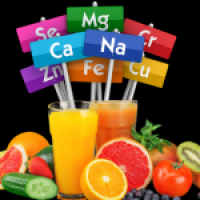Methylation: Importance for Health, Supplements, Symptoms, Genetics, and Best Practices

Article Summary
Methylation is an important process in the body that helps with many functions, such as making DNA, producing brain chemicals, and getting rid of toxins. It works by adding a small molecule, called a methyl group, to other molecules, which helps control which genes are turned on or off. Methylation also helps with brain function, detoxifying harmful substances, and repairing DNA. If methylation doesn’t work properly, it can cause health problems, including mood disorders, memory issues, and a higher risk of diseases like cancer.
Some people may have poor methylation due to genetics, diet, or lifestyle choices. Signs of poor methylation include feeling tired, having trouble focusing, mood swings, digestive problems, and heart issues. It can also cause hormonal imbalances and make it harder for the body to remove toxins. Certain vitamins and minerals, such as B12, folate, magnesium, and betaine, can help support methylation. Eating a balanced diet with leafy greens, eggs, and lean meats, while avoiding processed foods and toxins, can improve this process.
To keep methylation working well, it’s important to manage stress, drink plenty of water, exercise, and get enough sleep. Avoiding toxins and getting tested for genetic factors, like the MTHFR gene, can also help determine the best ways to support methylation. Since this process affects so many parts of the body, taking care of it can improve overall health and well-being. Talking to a doctor or nutritionist can help find the best plan for keeping methylation balanced.
Want to know more details?
Check out the full article below.
Why Your Body Needs Methylation—and How You Can Help It
Have you ever felt tired, moody, forgetful, or just not like yourself? You might be dealing with something called methylation, a natural process in your body that affects everything from your energy to your mood.
At Intentional Wellness, Inc., you can get personal support through functional medicine coaching to help your body methylate properly and help you feel your best again.
What Is Methylation, Anyway?
Methylation is like flipping switches inside your body. It helps control:
-
Which genes turn on and off
-
How your brain makes mood chemicals
-
How your body gets rid of toxins
-
How your cells stay strong and healthy
When methylation works right, you feel better physically and mentally. But when it doesn’t, you can feel tired, sad, or even sick.
Why Methylation Matters for Your Health
Methylation affects many important parts of your body:
-
It helps your brain make chemicals like serotonin and dopamine that control your mood and focus.
-
It supports your heart by keeping certain harmful substances, like homocysteine, in balance.
-
It repairs your DNA to help prevent damage and disease.
-
It plays a big role in your body’s ability to detox and stay clean inside.
Supporting this process with functional medicine coaching can help your body stay balanced and strong.
Signs Your Methylation Might Be Off
If your methylation process isn’t working well, you may notice:
-
Low energy or chronic tiredness
-
Sadness, anxiety, or feeling down
-
Trouble thinking clearly or remembering things
-
Sensitivity to foods, smells, or chemicals
-
High blood pressure or other heart concerns
-
Trouble focusing or hyperactivity
-
Frequent illnesses or slow healing
These signs might mean your body needs help. A coach trained in functional medicine can guide you toward solutions that fit your unique needs.
Learn more about the signs and science of methylation here.
Supplements That Can Help Methylation
Some vitamins and nutrients are especially important for healthy methylation, including:
-
Methylfolate (B9) – Helps turn food into usable vitamins
-
Methylcobalamin (B12) – Supports energy and brain function
-
Betaine – Helps keep your heart healthy
-
Vitamin B2 and B6 – Needed for energy and detox
-
Magnesium – Helps enzymes do their jobs
Functional medicine coaching can help you know which supplements are right for your body—and which ones you may not need.
Your Genes and Methylation
Sometimes, methylation problems are linked to your genes—especially if you have a variation in something called the MTHFR gene. This can make it harder for your body to use certain vitamins and nutrients. But the good news is that you can still feel better with the right approach.
A functional medicine coach can help you understand your genetics and how they affect your health, so you can take action that actually works for your body.
What You Can Do Each Day to Support Methylation
You don’t have to overhaul your life. Small steps can make a big difference. Try these tips:
-
Eat healthy foods like leafy greens, eggs, fish, and nuts
-
Reduce stress with deep breathing or calming activities
-
Stay hydrated by drinking plenty of water
-
Move your body with regular exercise
-
Get enough sleep every night
-
Avoid chemicals in food, products, and your home
These daily habits can support better methylation and improve how you feel every day. A coach can help you create a plan that works for your lifestyle.
Take the First Step Toward Feeling Better
If you’re ready to get to the root of what’s going on in your body, functional medicine coaching is a powerful place to start.
At Intentional Wellness, Inc., Shannon will work with you one-on-one to help you feel energized, focused, and in control of your health again.
More Detailed Info on Methylation
Methylation, a fundamental biochemical process, is critical in various bodily functions, from DNA synthesis to neurotransmitter regulation. It involves adding a methyl group (CH3) to a molecule, typically facilitated by enzymes called methyltransferases. This process is essential for gene expression, detoxification, neurotransmitter synthesis, and more. Understanding methylation, its significance for health, factors influencing it, and strategies to support it is vital for optimizing overall well-being.
Importance of Methylation for Health
Methylation impacts numerous physiological processes critical for maintaining health and preventing disease. Here’s why it’s crucial:
1. Gene Expression Regulation: Methylation patterns influence gene expression by modulating the accessibility of DNA to transcription factors. Proper methylation ensures appropriate gene activation and repression, thereby influencing various cellular functions.
2. Neurotransmitter Synthesis: Methylation is involved in the production of neurotransmitters such as dopamine, serotonin, and norepinephrine, which regulate mood, cognition, and behavior. Imbalanced methylation can affect neurotransmitter levels, leading to mood disorders and cognitive impairments.
3. DNA Repair and Stability: Methylation repairs DNA damage and maintains genomic stability. Dysfunctional methylation patterns can contribute to mutations, genomic instability, and increased cancer risk.
4. Detoxification: Methylation is integral to the detoxification process, particularly in the liver, where it facilitates the elimination of toxins, heavy metals, and metabolic waste products. Impaired methylation can compromise detoxification pathways, leading to toxin accumulation and oxidative stress.
Supplements That Enhance Methylation
Several nutrients are involved in the methylation process or act as cofactors for methyltransferase enzymes. Supplementing with these nutrients can support optimal methylation. Some key supplements include:
1. Methylfolate (5-MTHF): Methylfolate is the active form of folate, a B vitamin essential for methylation. It serves as a methyl donor in various methylation reactions, including converting homocysteine to methionine.
2. Methylcobalamin (Vitamin B12): Vitamin B12 is another crucial B vitamin involved in methylation. Methylcobalamin, its active form, participates in the regeneration of methionine from homocysteine, thereby supporting methylation reactions.
3. Betaine (Trimethylglycine): Betaine, derived from choline, serves as a methyl donor in the methionine cycle, assisting in the conversion of homocysteine to methionine.
4. Riboflavin (Vitamin B2) and Pyridoxal-5-Phosphate (Active Vitamin B6): These B-vitamins are cofactors for various enzymes involved in methylation pathways, including methylenetetrahydrofolate reductase (MTHFR).
5. Magnesium: Magnesium is essential for activating enzymes involved in methylation reactions, including methyltransferases. Adequate magnesium levels are crucial for optimal methylation.
Symptoms of Poor Methylation
Methylation is a crucial biochemical process that affects multiple systems in the body, including detoxification, neurotransmitter production, cardiovascular function, and immune response. When methylation is impaired, it can lead to a variety of symptoms that manifest across different organ systems. While symptoms can vary widely depending on individual genetics, lifestyle, and environmental exposures, here are some of the most common signs of poor methylation:
1. Fatigue and Low Energy Levels
Methylation is integral to the production of ATP (the body’s main energy currency) and the synthesis of Coenzyme Q10, both of which are necessary for optimal cellular energy production. Individuals with poor methylation may struggle with chronic fatigue, sluggishness, and difficulty sustaining energy throughout the day. They may also experience muscle weakness and poor exercise tolerance due to inefficient mitochondrial function.
2. Mood Disorders: Depression, Anxiety, and Irritability
Neurotransmitter balance is heavily influenced by methylation, which helps regulate serotonin, dopamine, and norepinephrine levels. Impaired methylation can contribute to mood imbalances, leading to symptoms such as persistent sadness, anxiety, irritability, mood swings, and even more severe mental health disorders like bipolar disorder or schizophrenia. Individuals with a genetic predisposition (such as those with MTHFR mutations) may be especially susceptible to mood-related symptoms due to suboptimal neurotransmitter synthesis.
3. Cognitive Difficulties: Brain Fog, Poor Concentration, and Memory Issues
Since methylation supports brain function, impaired methylation can lead to difficulties with cognitive processing, memory retention, and concentration. People may report brain fog, mental fatigue, difficulty multitasking, and slower processing speeds. These issues can become more pronounced with age and may increase the risk of neurodegenerative diseases such as Alzheimer’s and Parkinson’s.
4. Digestive Issues and Food Sensitivities
The gut and liver rely on methylation for detoxification and maintaining a balanced microbiome. Poor methylation can contribute to digestive issues such as bloating, gas, acid reflux, and irritable bowel syndrome (IBS). Additionally, individuals with methylation dysfunction often have increased sensitivity to gluten, dairy, histamines, and other food components due to compromised detoxification pathways. This may also lead to increased inflammation in the gut, contributing to conditions such as leaky gut syndrome.
5. Cardiovascular Problems: Elevated Homocysteine and Increased Disease Risk
One of methylation’s key roles is the conversion of homocysteine (a potentially harmful amino acid) into methionine, a process that helps regulate cardiovascular health. Impaired methylation can lead to elevated homocysteine levels, which are associated with an increased risk of blood clots, atherosclerosis, heart attacks, and strokes. Individuals with poor methylation may also experience high blood pressure, arrhythmias, and other cardiovascular irregularities.
6. Neurological Conditions: Autism, ADHD, and Neurodegeneration
Methylation is essential for brain development and neurological function. Research suggests that impaired methylation may play a role in neurodevelopmental disorders such as autism spectrum disorder (ASD) and attention deficit hyperactivity disorder (ADHD). Additionally, poor methylation can contribute to neurodegenerative conditions like Alzheimer’s and multiple sclerosis (MS) due to its effects on myelin production, neurotransmitter regulation, and inflammation control.
7. Hormonal Imbalances: Thyroid Dysfunction and Estrogen Dominance
Hormone regulation relies on proper methylation for the breakdown and elimination of excess hormones. Poor methylation can contribute to estrogen dominance, which has been linked to conditions such as fibroids, endometriosis, polycystic ovary syndrome (PCOS), and an increased risk of breast cancer. Similarly, methylation is essential for thyroid function, and impaired methylation can contribute to hypothyroidism, Hashimoto’s thyroiditis, and difficulty converting T4 (inactive thyroid hormone) to T3 (active thyroid hormone).
8. Impaired Detoxification and Increased Sensitivity to Environmental Toxins
The liver’s detoxification process depends on methylation to neutralize and eliminate toxins, heavy metals, and synthetic chemicals. When methylation is compromised, individuals may be more susceptible to chemical sensitivities, mold exposure, and heavy metal toxicity. Symptoms of impaired detoxification include headaches, skin rashes, chemical intolerance, frequent illness, and difficulty recovering from environmental exposures. Additionally, slow detoxification can lead to the accumulation of toxins in fat cells, potentially worsening inflammation and chronic conditions.
Additional Symptoms of Poor Methylation
Beyond the primary symptoms listed above, methylation dysfunction can also contribute to:
- Sleep disturbances: Difficulty falling or staying asleep, often due to imbalanced melatonin production.
- Frequent infections: A weakened immune system can result in recurring colds, sinus infections, or chronic viral illnesses.
- Joint pain and inflammation: Poor methylation may contribute to increased inflammation, which can exacerbate conditions such as rheumatoid arthritis or fibromyalgia.
- Skin conditions: Acne, eczema, and other skin problems may arise due to impaired detoxification and increased systemic inflammation.
- Hair loss and premature graying: Poor methylation can affect the production of proteins and enzymes needed for healthy hair growth and pigmentation.
Genetic Factors Influencing Methylation
Genetic variations can significantly impact methylation patterns and enzyme function, potentially leading to methylation imbalances. MTHFR gene mutation is one of the most well-known genetic polymorphisms affecting methylation. The MTHFR gene encodes the enzyme methylenetetrahydrofolate reductase, which is involved in folate metabolism and converting homocysteine to methionine. Variants of the MTHFR gene, particularly the C677T and A1298C mutations, can impair enzyme activity, leading to elevated homocysteine levels and decreased methylation capacity.
Other genetic factors influencing methylation include genes encoding enzymes involved in folate, vitamin B12, and choline metabolism, such as methionine synthase and methionine adenosyltransferase. Additionally, genetic variations in genes regulating detoxification pathways, neurotransmitter synthesis, and DNA repair mechanisms can impact methylation efficiency and overall health.
Best Daily Practices to Support Methylation
In addition to supplementation, several lifestyle and dietary strategies can promote optimal methylation:
1. Consume a Balanced Diet: Eat a diet rich in methyl-donor nutrients such as folate, vitamin B12, choline, and betaine. Include leafy green vegetables, legumes, nuts, seeds, eggs, lean meats, and seafood in your diet.
2. Manage Stress: Chronic stress can deplete methyl donors and impair methylation. Practice stress-reduction techniques such as mindfulness meditation, deep breathing exercises, yoga, or spending time in nature.
3. Maintain Adequate Hydration: Proper hydration is essential for optimal enzyme function, including methyltransferases in methylation reactions. Drink adequate water throughout the day to support methylation and detoxification.
4. Exercise Regularly: Regular physical activity can enhance methylation and improve overall metabolic health. Aim for a combination of cardiovascular exercise, strength training, and flexibility exercises.
5. Avoid Toxins: Minimize exposure to environmental toxins, heavy metals, and pollutants that can disrupt methylation pathways. Choose organic foods, use non-toxic household and personal care products, and avoid smoking and excessive alcohol consumption.
6. Get Quality Sleep: Prioritize sleep to support methylation and overall health. Aim for 7-9 hours of uninterrupted sleep each night and establish a consistent sleep-wake schedule.
7. Consider Genetic Testing: If you suspect genetic factors may influence your methylation status, consider undergoing genetic testing, particularly for variants in the MTHFR gene and other relevant genes involved in methylation pathways. This information can help tailor supplementation and lifestyle interventions to your genetic profile.
Methylation is a fundamental biochemical process with critical implications for health and disease. Optimal methylation is essential for gene expression regulation, neurotransmitter synthesis, DNA repair, detoxification, and numerous other physiological functions. By understanding the importance of methylation, identifying symptoms of poor methylation, addressing genetic factors, and implementing strategies to support methylation through supplementation, lifestyle modifications, and dietary interventions, individuals can optimize their methylation status and promote overall well-being. Consulting with a healthcare professional or a qualified nutritionist can provide personalized guidance and support in optimizing methylation for improved health outcomes.
References
-
- Liyanage, V.R., & Jarmasz, J.S., et al. (2014). “DNA Methylation: Molecular Mechanisms and Practical Applications”. Journal of Visualized Experiments.
- Yi, P., & Melnyk, S., et al. (2000). “Methylation and Its Impact on Health”. Nature Reviews Neuroscience. Retrieved from Nature Reviews Neuroscience
- Herman, J.G., & Baylin, S.B. (2003). “Gene Silencing in Cancer in Association with Promoter Hypermethylation”. The New England Journal of Medicine, 349(21), 2042-2054. Retrieved from The New England Journal of Medicine
- Bottiglieri, T. (1996). “Folate, Vitamin B12, and Neuropsychiatric Disorders”. Nutrition Reviews, 54(12), 382-390. Retrieved from Nutrition Reviews
- Mato, J.M., & Lu, S.C. (2005). “Role of S-Adenosyl-L-Methionine in Liver Health and Disease”. Hepatology, 42(4), 1271-1279. Retrieved from Hepatology

Further Reading: Detox
- Successful Detox and Liver Cleanse Tips and Tricks
- Why Integrative Health Practitioners Prioritize Liver Detoxification
- The Transformative Power of Doing a 21-Day Detox Diet
- Liver Cleanse to Avoid Gallstone Pancreatitis
- The Importance of Hydration for Detox Protocols, Lymphatic Flow, and Health
- Vitamins and Minerals for Successful Detox
- Methylation: Importance for Health, Supplements, Symptoms, Genetics, and Best Practices



